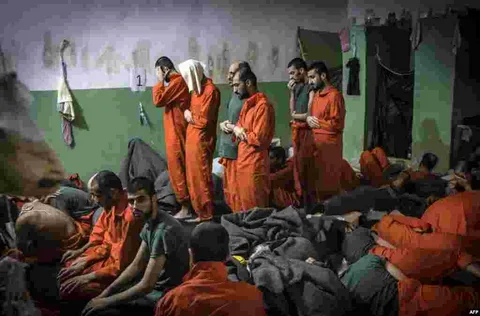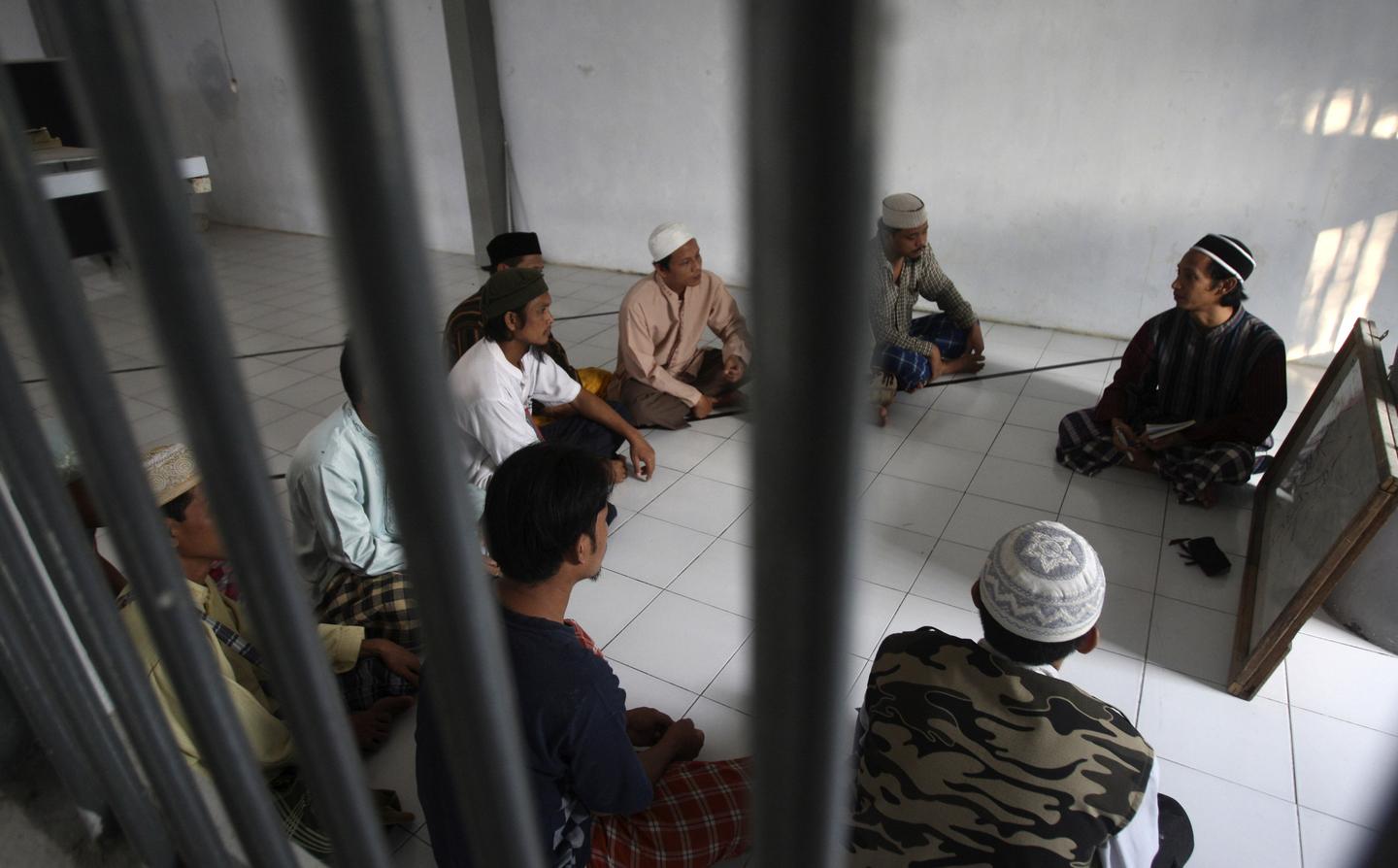
Introduction: Finding Light in the Darkest Places
Faith is often tested in moments of hardship, when life’s challenges seem overwhelming and hope begins to fade. For many, prison can be one of the darkest places on earth, a space that strips away comfort, freedom, and identity. Yet, it can also become the very place where the soul awakens.
Abdul Jihad Islam’s purposeful book reveals how faith can flourish even behind bars. Through his journey, he discovered that walls do not confine Islam; it lives in the heart, guiding, transforming, and strengthening believers no matter their circumstances.
His experience is a testament to the resilience of the human spirit and the power of divine connection. It reflects how Islam, when truly embraced, can turn punishment into purpose and confinement into clarity.
Rediscovering Faith in Isolation
Meaning
For Abdul Jihad Islam, prison became the turning point in his spiritual life. Stripped of worldly distractions, he found himself face, to, face with the essence of existence, faith, repentance, and the mercy of Allah.
In isolation, he realized that Islam is not just a religion of rituals but a complete way of life that nurtures the heart and mind. The discipline of prayer, fasting, and self-reflection became the foundation of his peace.
Daily Life Application
His story demonstrates that faith can be renewed anywhere. For those facing their own personal “prisons”, whether of guilt, hardship, or loss, the lesson is clear: reconnect with Allah through sincerity and patience.
Even when the world feels distant, prayer and remembrance of Allah can transform solitude into serenity. Islam teaches that no matter where one is, the doors of repentance remain open.
The Power of Salah in Transformation
Meaning
Prayer was the anchor that grounded Abdul Jihad, through his years of confinement. Each salah became a moment of freedom a time to connect with Allah, seek forgiveness, and find strength.
The Prophet Muhammad ﷺ said:
“The coolness of my eyes is in prayer.” (Nasai)
Salah offers spiritual liberation for those behind bars, where physical freedom is limited. It reminds believers that Allah is near, listening and guiding, even when the world turns away.
Daily Life Application
In prison, Abdul Jihad encouraged others to pray, teaching that even small steps toward consistency could bring inner peace. Prayer structured the day, gave meaning to time, and replaced anger with reflection.
For those living in society, the same principle applies. Salah should not be seen as an obligation but as a gift — a pause that refocuses the heart amid the noise of modern life. It becomes the believer’s shield against temptation and despair when practiced sincerely.
Brotherhood and Support in Difficult Times
Meaning
One of the most profound lessons from Abdul Jihad’s journey was the value of brotherhood within the Ummah. Even in confinement, he experienced kindness, understanding, and unity among fellow Muslims. They shared food, faith, and words of encouragement, strengthening each other through trials.
Islam emphasizes that no believer walks alone. Brotherhood brings light to the darkest paths, reminding each Muslim that they are part of something greater, a global family bound by belief in Allah.
Daily Life Application
Whether in prison or free society, the essence of brotherhood remains the same: to support, forgive, and uplift one another. When Muslims extend empathy and compassion, they mirror Allah’s mercy to His servants.
Acts of kindness, even as small as a smile or a comforting word, can ease burdens and strengthen hearts. Through brotherhood, believers reflect the beauty of Islam and fulfill the Prophet’s ﷺ teaching that the Ummah is like one body, united in care and compassion.
Faith as Redemption and Renewal
Meaning
Faith gave Abdul Jihad the strength to rise from his past mistakes and walk a path of repentance and purpose. Islam became his means of redemption, showing that no sin is too great when one sincerely turns back to Allah.
The Qur’an promises:
“Say, ‘O My servants who have transgressed against themselves, do not despair of the mercy of Allah. Indeed, Allah forgives all sins. Indeed, it is He who is the Forgiving, the Merciful.’” (Qur’an 39:53)
This verse became a guiding light for him and countless others who struggle to forgive themselves. Through prayer, fasting, and reflection, he found freedom not of body but of soul.
Daily Life Application
Every believer can relate to the idea of seeking redemption. Mistakes are part of being human, but Islam teaches that growth begins with repentance. Turning to Allah sincerely brings a new beginning rooted in humility and hope.
Faith allows individuals to rebuild their lives, no matter how broken they once were. Redemption in Islam is not about perfection but persistence in returning to Allah’s mercy.
Carrying Faith from Prison to Society
Meaning
Upon release, Abdul Jihad faced new challenges: the temptations of freedom, the judgments of others, and rebuilding his life. Yet, the lessons learned in confinement became his strength in society.
He learned that Islam is not just for survival in hardship but for growth in prosperity. The discipline, gratitude, and patience nurtured behind bars guided him through every new test outside of them.
Daily Life Application
His journey shows that practicing Islam is a lifelong commitment. Whether in prison or society, the principles remain the same: consistency in prayer, honesty in dealings, and compassion toward others.
Every believer can draw inspiration from this to hold onto faith during trials and carry its light into everyday life. The same devotion that is sustained in difficulty must continue with ease.
Modern Reflection: Finding Faith in Every Place
In today’s world, many face emotional and spiritual confinement, anxiety, guilt, loneliness, or addiction. Abdul Jihad’s story is a reminder that freedom begins in the heart.
Faith can heal what walls cannot. The Qur’an, salah, and remembrance of Allah remain powerful tools for those who seek peace. Islam provides clarity amid chaos and teaches that even pain can have purpose when endured with patience.
Modern Muslims can learn from his journey that hardship is not the end but a beginning. True faith transforms suffering into strength and tests into testimonies of divine mercy.
Reflection for the Reader
The story of Abdul Jihad Islam inspires every believer to reflect on their own spiritual journey:
• What challenges have strengthened faith rather than weakened it?
• How can salah and remembrance of Allah bring peace during personal struggles?
• Are there “prisons” in the heart, guilt, anger, or pride, that need release through repentance?
• How can one use faith not only for survival but for transformation?
Reflection leads to awareness, and awareness leads to growth. The key is to trust Allah’s plan, even when the destination is unclear.
A Journey Shared Through Faith
Abdul Jihad Islam’s “Practicing Islam in Prison and Society” is a personal story and a spiritual guide for anyone seeking meaning in difficulty. Through his experience, readers witness how the core principles of Islam, faith, patience, and brotherhood, can bring light even in the darkest places.
The book reminds readers that practicing Islam is not about perfection but persistence. Whether confined or free, rich or poor, every believer can find peace in surrendering to Allah’s will.
For anyone longing to rediscover faith or seeking redemption through Islam, this work stands as a beacon of hope, showing that Allah’s mercy can always lead the way home, no matter where one begins.

